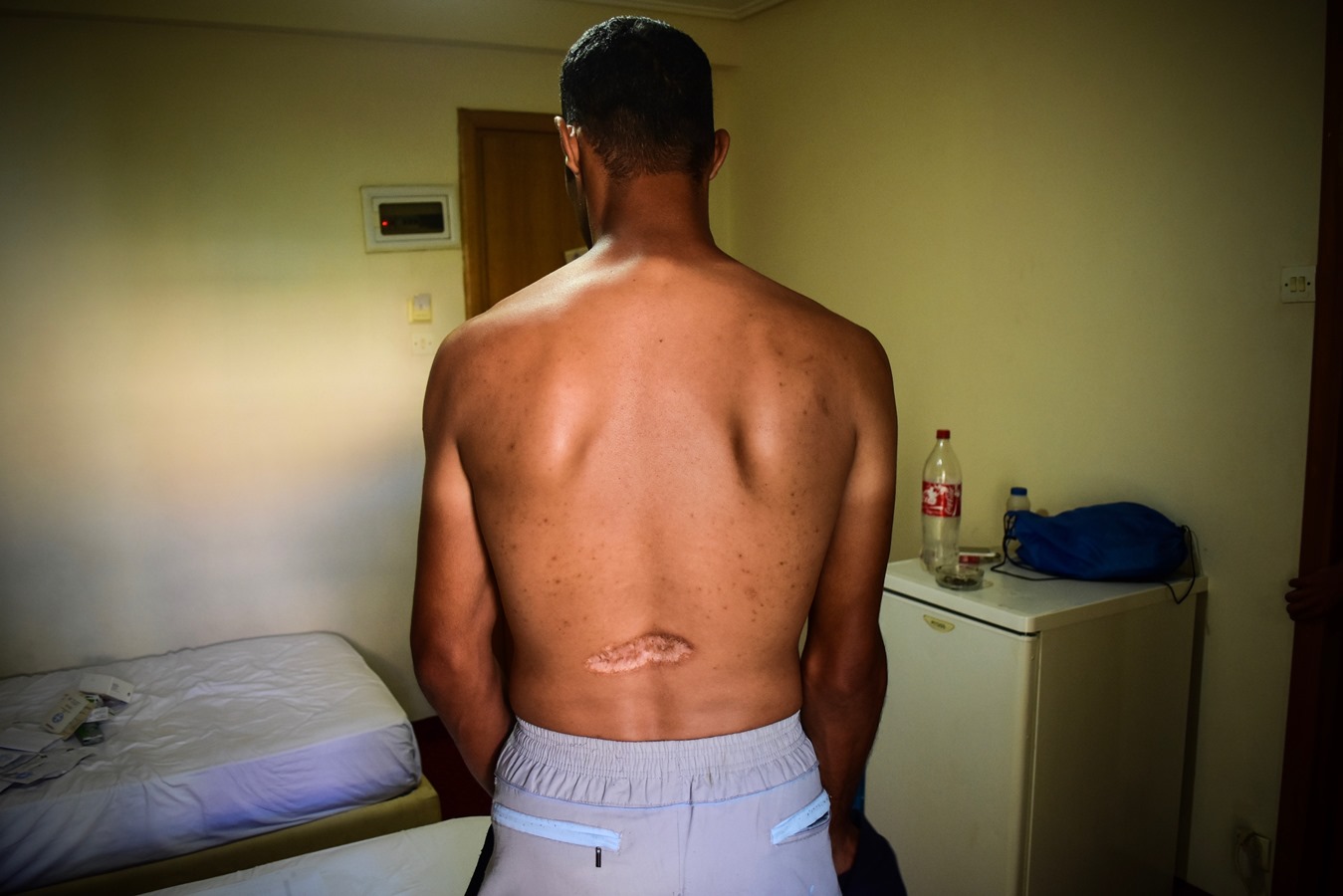Unnecessary Suffering for Asylum Seekers on the Greek Islands

As a human rights researcher and advocate for many years, I have sadly become accustomed to listening to painful stories and to witnessing people’s despair. But on the Greek islands, there is an added layer of cruelty: this pain is avoidable.
To implement an EU agreement with Turkey aimed at preventing further arrivals of asylum-seekers and migrants on the Greek islands and returning them to Turkey, the Greek government generally prohibits people from leaving the islands for the mainland. They are processed under an “admissibility” procedure that does not examine their asylum claim but only whether they can be returned to Turkey. Some are exempted from this procedure: those who are eligible to reunite with a family member in another EU country and people identified as vulnerable. They are allowed to leave the island for the mainland, and remain there while the Greek authorities examine their asylum claim. But even then, they must wait for accommodation to be available for them on the mainland and this can take weeks.
“People who were detained and tortured in Syria described the anxiety and torment of being stuck without answers as to if and when they can leave…”
Over the past days, I have met parents who are desperate to reach Athens so their child can undergo surgery or receive treatment that is not available on the island where they are staying. People who were detained and tortured in Syria described the anxiety and torment of being stuck without answers as to if and when they can leave, as did people with mental health conditions.
One Syrian man, who was tortured during his imprisonment in Syria and has bullet wounds in his back from the war, has been on the island of Lesvos for a year. Even though he has been accepted in a program for the rehabilitation of torture survivors in Athens, the authorities have not lifted his geographic restriction.

To add insult to injury, the conditions in which people are forced to wait are unworthy of a country that professes to respect the human rights and well-being of asylum-seekers, with many forced to live in overcrowded camps in the scorching heat, in tents or containers in which unrelated people are often forced to cohabitate. In the camp of Souda on the island of Chios, rats are a recurrent complaint, as is security. People described the humiliation of having to stand in line for food and the anxiety of not being given answers about if and when they would be able to leave. Several described the island as a prison.
“To add insult to injury, the conditions in which people are forced to wait are unworthy of a country that professes to respect the human rights and well-being of asylum-seekers…”
In December, an EU action plan for the implementation of the EU-Turkey statement suggested lifting the exemption from the admissibility procedure for people belonging to vulnerable groups. Steps are already being taken in this direction: unlike Syrians, non-Syrian asylum-seekers, even if they are identified as vulnerable, must now stay on the island until they complete their first asylum interview. This is but one instance in which different procedures are applied on the basis of nationality, an issue that exacerbates resentment and feelings of unfairness.
No one should be forced to live in these conditions, whoever they are and whatever the reason they fled their country. But there is a particular indignity in subjecting people who have fled war or persecution at home to further degrading conditions and humiliations.
Contrary to what European leaders claim, this is not an unmanageable situation. On the entire territory of the European Union – 28 member states, the world’s richest economic bloc – around 1.4 million asylum-seekers and migrants have arrived since 2015. In 2016, the countries hosting the largest numbers of refugees were non-EU members: Turkey (2.9 million), Pakistan (1.4 million) and Lebanon (one million, which represents a quarter of the country’s population).
The EU has provided considerable amounts of funding for the management of the situation of refugees and migrants in Greece. So why are people still sleeping in tents among rats?
Europe and Greece have the means to prevent the shameful situation on the islands, and they should work together to do so. An EU plan to relocate asylum seekers from Greece and Italy only applies to people of certain nationalities and, in Greece, even they are ineligible if they arrived after the EU-Turkey statement took effect on March 20, 2016.
There is no excuse for forcing men, women and children to live in these conditions, depriving them from treatment and leaving them without answers on their future. For these reasons, the Greek authorities should end the containment policy on the islands. More significantly, this implementation of the EU agreement with Turkey cannot be squared with the requirements international human rights law and humanitarian standards.